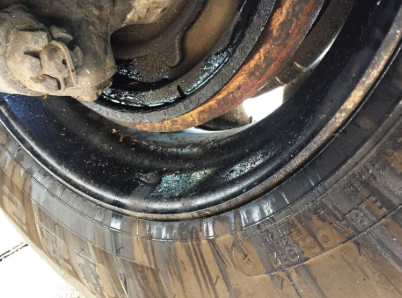What to Know When Searching for a Business for Sale in Naperville, Illinois
Understanding the Naperville Business Landscape
Naperville is a pretty interesting place to think about buying a business. It’s not just a suburb of Chicago; it’s got its own vibe and economy. Knowing what makes Naperville tick is super important before you even start looking at businesses for sale. You need to understand the local market to make a smart decision. Let’s get into it.
Key Industries Thriving in Naperville
Naperville has a diverse economy, which is good because it’s not too reliant on any single industry. Healthcare, retail, technology, and professional services are all big players here. Edward Hospital is a major employer, and the retail scene is strong with places like the Westfield Fox Valley mall. The tech sector is growing, with many companies drawn to the area’s educated workforce and proximity to Chicago. Professional services, like accounting and law firms, also do well here. Knowing which industries are doing well can help you focus your search on businesses that have a better chance of succeeding.
Demographics and Consumer Behavior
Naperville is known for being a pretty affluent and well-educated community. The median household income is higher than the national average, and a lot of residents have bachelor’s degrees or higher. This means that people in Naperville have more money to spend and are often looking for high-quality products and services. Consumer behavior here is influenced by a focus on family, education, and community involvement. Businesses that cater to these values tend to do well. For example, restaurants, tutoring services, and recreational activities are popular. Understanding these demographics can help you tailor your business to meet the needs of the local population.
Local Economic Indicators
Keeping an eye on Naperville’s economic indicators is a smart move. Things like unemployment rates, job growth, and housing market trends can give you a sense of the overall health of the local economy. If the unemployment rate is low and job growth is strong, that’s a good sign that businesses are likely to do well. The housing market is another important indicator. If home values are increasing, it suggests that people are confident in the local economy. You can find this information from sources like the Naperville Area Chamber of Commerce, the Illinois Department of Employment Security, and local news outlets. Staying informed about these trends can help you make a more informed decision about buying a business.
Understanding the economic climate is important. It’s not just about the numbers; it’s about the overall feeling in the community. Are people optimistic about the future? Are businesses investing in the area? These are the kinds of things you want to know before you commit to buying a business in Naperville.
Navigating the Business Acquisition Process
Buying a business isn’t like buying a new car. There’s a lot more to it than just finding something you like and signing the papers. It’s a process, and knowing the steps can save you a lot of headaches (and money) down the road. Let’s break it down.
Defining Your Acquisition Criteria
Before you even start looking, you need to figure out what you’re actually looking for. What kind of business are you interested in? What are your skills and experience? What’s your budget? Don’t just jump in because something looks shiny. Think about what you want to achieve and what you’re capable of handling. Having clear criteria will help you narrow your search and avoid wasting time on businesses that aren’t a good fit.
Here are some questions to consider:
- What industry are you interested in?
- What size of business are you looking for (revenue, employees)?
- What location are you targeting within Naperville?
- What are your financial goals for the business?
- What are your risk tolerance levels?
Due Diligence Essentials
Okay, you’ve found a business that looks promising. Now comes the really important part: due diligence. This is where you dig into the business’s records to make sure everything is as it seems. Don’t skip this step! It’s your chance to uncover any hidden problems before you’re stuck with them. Get ready to look at financials, contracts, legal documents, and anything else that could affect the business’s value.
Here’s a quick checklist:
- Review financial statements (profit and loss, balance sheets, cash flow statements) for the past 3-5 years.
- Examine tax returns to verify income and expenses.
- Analyze customer concentration to assess risk.
- Investigate any pending lawsuits or legal issues.
- Evaluate the condition of assets (equipment, inventory, property).
Due diligence is not just about finding problems; it’s about understanding the business you’re buying. It’s about making an informed decision based on facts, not just feelings. Don’t be afraid to ask questions and get expert help if you need it.
Structuring the Purchase Agreement
So, you’ve done your homework and you’re ready to make an offer. Now it’s time to put together the purchase agreement. This is the legal document that outlines the terms of the sale, including the price, payment terms, closing date, and any other conditions. It’s important to get this right, so work with a lawyer to make sure everything is clear and protects your interests. Don’t just sign whatever the seller puts in front of you. Negotiate! Make sure you’re getting a fair deal.
Things to consider in the purchase agreement:
- Asset purchase vs. stock purchase: Which is better for you?
- Payment terms: How will you pay for the business?
- Closing date: When will the sale be finalized?
- Representations and warranties: What guarantees is the seller making?
- Non-compete agreement: Will the seller be allowed to start a competing business?
The Role of Business Brokers Illinois
Why Engage a Business Broker
Selling or buying a business can be complex. It’s easy to get lost in the details. That’s where business brokers Illinois come in. They act as intermediaries, guiding you through the process. Think of them as real estate agents, but for businesses. They bring experience and knowledge to the table, which can save you time and money in the long run. They can help with valuation, marketing, negotiation, and closing the deal. It’s like having a guide in a jungle of paperwork and legal stuff.
Finding Reputable Business Brokers Illinois
Finding the right broker is important. Not all brokers are created equal. You want someone with a good track record and a solid reputation. Here are some things to consider:
- Experience: How long have they been in the business?
- Industry Knowledge: Do they understand your specific industry?
- References: Can they provide references from past clients?
- Professional Affiliations: Are they members of any professional organizations?
Check online reviews and ask for recommendations from other business owners. A good broker should be transparent and upfront about their fees and services. Don’t be afraid to interview several brokers before making a decision.
Services Offered by Business Brokers Illinois
Business brokers do more than just connect buyers and sellers. They offer a range of services designed to make the transaction as smooth as possible. Here’s a breakdown of what they typically do:
- Business Valuation: Determining the fair market value of the business.
- Marketing: Advertising the business for sale to potential buyers.
- Screening Buyers: Qualifying potential buyers to ensure they are serious and financially capable.
- Negotiation: Representing your interests during negotiations with the other party.
- Due Diligence Assistance: Helping with the due diligence process, including reviewing financial records and contracts.
- Closing the Deal: Managing the closing process and ensuring all paperwork is completed correctly.
A good business broker acts as a buffer, handling sensitive negotiations and keeping the process moving forward. They can also help you avoid common pitfalls and mistakes that can derail a deal. They are there to help you navigate the complexities of buying or selling a business.
Financing Your Naperville Business Purchase
So, you’ve found a business for sale naperville that you’re interested in. Great! Now comes the slightly less fun part: figuring out how to pay for it. Don’t worry, there are several avenues you can explore. Let’s break down some common financing options.
SBA Loans and Traditional Lending
SBA (Small Business Administration) loans are often a go-to for business acquisitions. They typically offer favorable terms, like lower interest rates and longer repayment periods, compared to traditional bank loans. However, the application process can be a bit involved, requiring a solid business plan and financial projections. Traditional bank loans are another option, but they might require more collateral and a stronger credit history.
- SBA 7(a) Loan: A versatile loan for various business needs, including acquisitions.
- SBA 504 Loan: Primarily for purchasing fixed assets like real estate or equipment.
- Traditional Bank Loan: Requires a strong credit profile and business plan.
Seller Financing Options
Sometimes, the seller of the business is willing to finance a portion of the purchase price. This can be a win-win situation. It shows the seller’s confidence in the business’s future and can make the deal more accessible for the buyer. Seller financing terms are often negotiable, so it’s worth exploring this option. Seller financing can be a great way to bridge the gap if you’re short on capital.
Alternative Funding Sources
Don’t forget to consider alternative funding sources. These could include:
- Angel Investors: Individuals who invest in early-stage companies.
- Venture Capital: Firms that invest in businesses with high growth potential.
- Crowdfunding: Raising capital from a large number of people, typically online.
- Personal Savings/Investments: Using your own funds to finance the purchase.
Securing financing is a critical step in acquiring a business. Thoroughly research all available options, compare terms, and choose the financing solution that best aligns with your financial situation and business goals. Don’t be afraid to seek advice from financial advisors or business brokers to help you navigate the process.
Legal and Regulatory Considerations
Licensing and Permits in Naperville
Okay, so you’re buying a business. Cool! But before you pop the champagne, you gotta wade through the paperwork jungle. Naperville, like any city, has its own set of rules. You’ll need to figure out what licenses and permits your new business needs to operate legally. This isn’t a one-size-fits-all thing; it depends on the type of business. A restaurant will have different requirements than, say, a retail store or a service-based company.
Here’s a quick rundown of where to start:
- City of Naperville Website: This should be your first stop. Look for the business licensing section. They usually have a list of common licenses and permits.
- Illinois Department of Revenue: You’ll likely need a state tax ID, so get that sorted out.
- Specific Industry Associations: Some industries have their own licensing boards. Check if yours does.
Don’t skip this step! Operating without the proper licenses can lead to fines, penalties, or even getting shut down. Nobody wants that.
Understanding Local Zoning Laws
Zoning laws are basically rules about what kind of businesses can operate where. You don’t want to buy a business only to find out it’s not allowed in that location. Imagine buying a car repair shop, only to discover the area is zoned for residential use only. Big problem!
Here’s what you need to do:
- Check the Zoning Map: The City of Naperville has zoning maps available online or at the city hall. Find the property where your business is located and see what the zoning designation is.
- Understand Permitted Uses: Each zoning designation has a list of permitted uses. Make sure your business type is on that list.
- Non-Conforming Uses: Sometimes, a business exists that doesn’t conform to current zoning. This is called a “non-conforming use.” There are rules about expanding or changing these businesses, so be careful.
Zoning laws can be confusing, so don’t be afraid to ask for help. The city planning department can answer your questions and help you understand the regulations.
Employment Law Compliance
If your new business has employees, you’re now an employer! That means you have to follow a whole bunch of employment laws. These laws cover everything from wages and hours to discrimination and safety. It’s a lot to keep track of.
Here are some key areas to focus on:
- Wage and Hour Laws: Make sure you’re paying employees at least the minimum wage and overtime when required. Illinois has its own wage laws, so be sure to check those.
- Anti-Discrimination Laws: You can’t discriminate against employees based on race, religion, gender, age, disability, etc. Federal and state laws protect employees from discrimination.
- Safety Regulations: You have to provide a safe workplace for your employees. OSHA (Occupational Safety and Health Administration) sets safety standards that you need to follow.
| Law | Description
Evaluating Business Valuation and Pricing
Common Business Valuation Methods
When you’re trying to figure out what a business is really worth, there are a few ways to go about it. It’s not always straightforward, and different methods can give you different numbers. You’ll probably hear about these:
- Asset-based valuation: This looks at what the business owns – its equipment, inventory, and cash – and subtracts what it owes (liabilities). It’s pretty simple, but it might not capture the full picture, especially for businesses that rely on things like brand reputation or customer relationships.
- Earnings-based valuation: This focuses on how much money the business makes. A common approach is to use a multiple of earnings, like the price-to-earnings (P/E) ratio. The multiple you use depends on the industry, the business’s growth potential, and other factors.
- Discounted cash flow (DCF) valuation: This method projects the business’s future cash flows and then discounts them back to their present value. It’s more complex but can be useful for businesses with predictable cash flows.
Factors Influencing Business Value
Lots of things can affect how much a business is worth. It’s not just about the numbers on a spreadsheet. Here are some key factors:
- Financial performance: Revenue, profitability, and cash flow are all important. A business with strong, consistent financial results will generally be worth more.
- Market conditions: The overall economy and the specific industry the business is in can have a big impact. A growing market can increase a business’s value.
- Competitive landscape: How many competitors are there? How strong are they? A business with a strong competitive advantage will be more valuable.
- Management team: A skilled and experienced management team can add a lot of value. Buyers want to know that the business can run smoothly even after the current owner leaves.
- Intangible assets: Things like brand reputation, customer relationships, and intellectual property can be valuable assets, even if they don’t show up on the balance sheet.
Negotiating the Purchase Price
Okay, so you’ve got a valuation in mind. Now it’s time to negotiate. Remember, the initial asking price is just a starting point. Here are some tips:
- Do your homework: Know the business’s financials inside and out. Understand the industry and the local market. The more information you have, the better.
- Be prepared to walk away: Don’t get so attached to the deal that you’re willing to overpay. Set a limit and stick to it.
- Focus on value, not just price: Think about the long-term potential of the business. A slightly higher price might be worth it if the business has strong growth prospects.
- Get professional help: A business broker or attorney can help you negotiate the deal and protect your interests.
It’s important to remember that business valuation is not an exact science. It’s more of an art. There’s always some subjectivity involved, and the final price will depend on what both the buyer and seller are willing to agree on. Don’t be afraid to negotiate and be creative to find a deal that works for everyone.
Post-Acquisition Integration and Growth
Transitioning Ownership Smoothly
Okay, so you’ve bought a business. Now what? The transition period is super important. It’s not just about signing papers; it’s about making sure things keep running well. A well-planned transition can make or break the early days of your ownership.
Here’s what I think is important:
- Meet with the previous owner often. Get all the details you can. Don’t be afraid to ask what might seem like dumb questions.
- Talk to employees. They know how things work day to day. Listen to their concerns.
- Communicate with customers. Let them know you’re the new owner and that you’re committed to keeping things great.
It’s easy to get caught up in the excitement of owning a business, but remember that change can be hard for everyone involved. Be patient, be understanding, and focus on building trust.
Retaining Key Employees and Customers
People are what make a business work. Keeping the good ones is key. If the employees leave, you’re in trouble. If the customers leave, you’re also in trouble.
Here’s a simple table to think about:
| Group | Why They’re Important | How to Keep Them Happy | Offer competitive pay and benefits. Show them they are valued. |
| Employees | They know the business inside and out. They keep things running. | Give them opportunities for growth. Listen to their ideas. |
| Customers | They bring in revenue. They are the reason you’re in business. | Provide great service. Show them you care. |
Strategies for Business Growth
So, you’ve stabilized the business. Now it’s time to grow. But how? There are a lot of ways to do it.
Here are some ideas:
- Expand your marketing. Reach more people. Try new things.
- Improve your products or services. Make them even better.
- Look for new markets. Sell to new customers.
- Consider partnerships. Work with other businesses.
- Invest in technology. Make things more efficient.
Don’t be afraid to experiment. Not everything will work, but you’ll learn as you go. And remember to always keep an eye on the numbers. Make sure your growth is profitable.
Wrapping Things Up
So, there you have it. Finding a business to buy in Naperville can be a pretty big deal, but it doesn’t have to be super scary. Just remember to do your homework, look at the numbers, and maybe get some good advice from folks who know what they’re doing. Naperville’s a great spot, and with a little effort, you might just find the perfect business waiting for you. Good luck out there!
Frequently Asked Questions
Why is Naperville a good spot to buy a business?
Naperville is a good place for businesses because it has a strong economy, many different kinds of businesses, and people who have money to spend. It’s also a nice community, which helps attract good workers and customers.
Where can I look for businesses for sale in Naperville?
You can find businesses for sale in a few ways. You can look online on special websites, talk to business brokers who help people buy and sell businesses, or sometimes even hear about opportunities through word-of-mouth from people you know in the area.
What does a business broker do?
A business broker is like a real estate agent, but for businesses. They help you find businesses that fit what you’re looking for, assist with the paperwork, and can even help you talk about the price. They make the whole process easier.
How can I get money to buy a business?
You might need money from a bank, especially if you can get a special loan backed by the government (like an SBA loan). Sometimes, the person selling the business might let you pay them over time. There are also other ways to get money, like from investors.
Do I need special permits or licenses to run a business in Naperville?
Yes, you’ll need to get the right licenses and permits from the city and state. You also need to understand the rules about where businesses can be located and follow laws about hiring and paying employees. It’s important to check all these things carefully.
How do people figure out how much a business is worth?
Figuring out how much a business is worth can be tricky. Experts look at things like how much money the business makes, what it owns, and how well it’s expected to do in the future. This helps them come up with a fair price for both the buyer and the seller.






